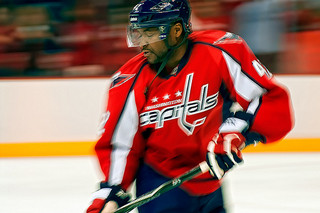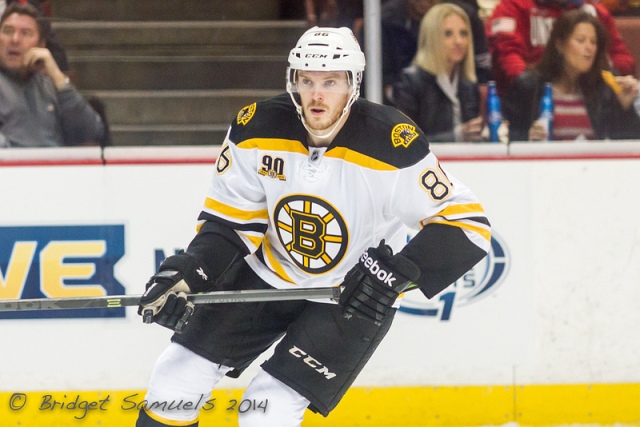In case you haven’t noticed, the NHL is putting on a lot of outdoor games this season. The Winter Classic and Heritage Classic have gained four brothers in the Stadium Series, with one game at Dodger Stadium, two at Yankee Stadium, and one more at Soldier Field in March. Some have said that this is overkill, and that by making these special events less rare, the NHL is making the Winter Classic less special. They may have a point. But that is not the NHL’s concern.
The NHL’s concern is television ratings, and right now the league is struggling to bring in television viewers south of the 49th parallel. Through 43 games on NBCSN this season, the NHL is averaging just 357,000 viewers per game, and even that’s misleading, skewed upwards by a handful of games that had more than 600,000 viewers. The median viewership for NHL on NBCSN is 247,000 people. For comparison, the English Premier League, which plays on weekend mornings and weekday afternoons, is averaging 380,000 viewers through 97 games on NBCSN, with a median audience of 373,000.
That comparison is not flattering to the NHL. Hockey wants to think of itself as one of the “big 4” sports in America, but it’s hard to do that when a foreign soccer league draws more viewers. But there is a snowy bright spot to the numbers. The Winter Classic on New Year’s Day, which pitted the Detroit Red Wings against the Toronto Maple Leafs at Michigan Stadium, was watched by 4.4 million Americans, more than quadruple the audience of NBC’s best Premier League outing. 4.4 million is slightly smaller than the average audience for 2011’s Bruins-Canucks finals, which did have two games shown on NBCSN, and much bigger than 3.0 million averaged by the 2012 Kings-Devils series.
Sunday’s Devils-Rangers game, played at Yankee Stadium, drew an audience of 2.1 million, the largest regular season (non-Winter Classic) viewership that NBC’s ever had. Rangers-Islanders at Yankee Stadium and Ducks-Kings at Dodger Stadium each had more than 600,000 viewers on NBCSN, making them the third and sixth largest cable games so far this season.
That’s a lot of numbers, but their meaning is clear: people watch outdoor hockey more than comparable indoor games.
The challenge for the NHL now is finding a way to translate viewers of outdoor hockey into viewers of indoor hockey. Some, maybe even most of the people tuning in to outdoor games would call themselves hockey fans, and regularly watch games throughout the season. But the increase in viewers comes in part from casual fans, who may or may not watch hockey normally, but enjoy the spectacle of snow on television. (It’s a pity that forecasts for the Super Bowl expect weather in the 40s.) Or maybe they watch for the oddity of hockey being played in venues other sports made historic.
It’s not a coincidence that the number of outdoor games ballooned in an Olympics year. Americans will watch sports they otherwise wouldn’t when they are presented as international competition. 16 million people watched the gold medal game between the US and Canada in 2002, and 27.6 million watched the same gold medal match-up in 2010. But that hasn’t carried over to ratings success for NHL games, and there’s no guarantee of seeing a repeat run by the US in Russia. So while most outdoor games have been in January, when the weather is coldest, it’s notable that the Blackhawks and Penguins will be playing in Soldier Field on March 1st, after the league returns from the Olympics. Expect NBC to promote that heavily during their Olympics coverage.


